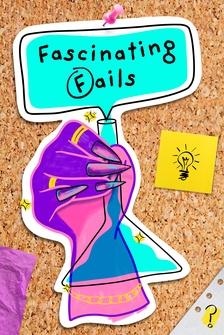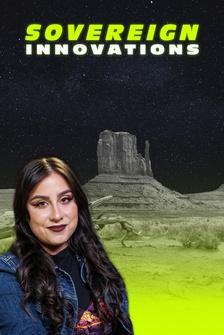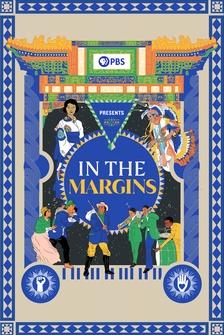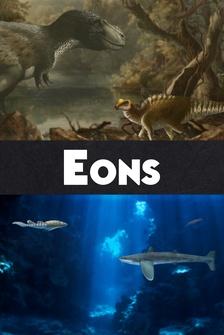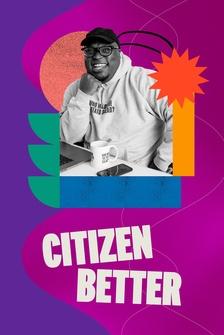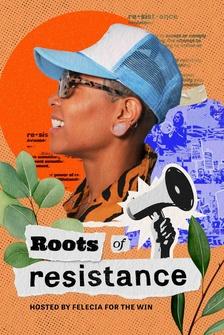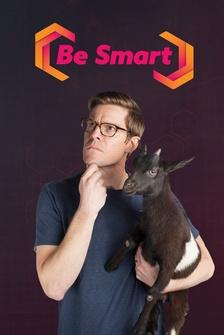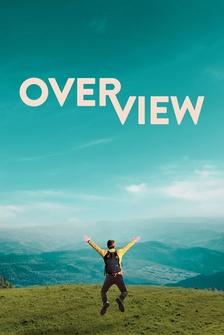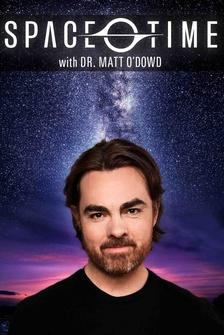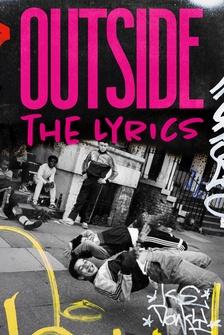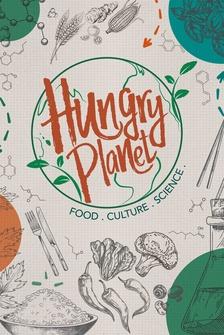- Today as a nation, we are learning to live with a life-threatening pandemic.
People can appear to be healthy and well, but in actuality, they can be the host to this deadly disease.
Oftentimes this disease is passed down from generation to generation.
(low instrumental music) Racism is a disease that is able to seep into a person.
It buries itself within a person's heart, body, and mind.
(low electronic music) - How's it going, Danielle?
- Um, I don't know if I could have a genuine response to that question anymore, but it's going.
Hopefully there'll be a day again where it will be safe to ask "How are you doing?"
and not have to brace yourself for impact.
- United we stand.
- Divided we fall.
- United we stand.
- Divided we fall!
- Back up!
Back up!
- We want freedom, freedom!
- [Danielle] Since the killing of Breonna Taylor, George Floyd, and too many others, people have taken to the streets to protest racial inequality and police brutality in record-breaking numbers.
With anti-racist activists gaining more attention from wider groups, we want to explore what their lived experiences are like versus the way activists are usually seen.
- We do this work so that we don't have to do it anymore.
You know, I will, I will be okay if I am told that I never have to write another book on racial justice if it's because there has been racial justice.
- [Danielle] Rachel Cargle, an activist and teacher, first gained her platform after a photo of her at the 2017 Women's March was shared.
- The thing that made the most conversation was a sign that said, "If you don't fight for all women, you fight for no women."
As that photo continued to go viral, I just was invited to be part of more and more conversations about feminism, about race.
- [Danielle] And with the recent wave of protests, she's gained 1.5 million new followers.
- So much of what we understand as success in the world right now, whether it's the number of followers you have, or, you know, the opportunities for press and media, me having a book deal to talk about race only to talk about the things that are killing us, it is very much so a mind twist of, you know, what am I doing and how am I doing it and why am I doing it and to what end?
- [Ali] Ijeoma Oluo also had immense success in the wake of these tragedies.
Her book "So You Want to Talk About Race" recently shot to the top of many bestseller lists two years after it was first released.
- To realize that it takes, you know, the type of brutality we saw to get people to like suddenly realize they, they can have these conversations.
They're willing to have these conversations.
It can, it can hurt to realize like, oh, people could do this.
People can engage and they've just chosen not to, hurt a lot.
You know, I'm just trying to leverage the attention that's being paid right now in hopes of getting real action.
- [Danielle] You might think the idea of an influencer or using media to promote your own self image or a certain vision of yourself is a new idea.
But it's actually something that goes back as far as media itself.
Think about the civil rights movement of the 1950s and '60s.
Groups like the Student Nonviolent Coordinating Committee, or SNCC, went out and had their own photographers and their own media coordinators so that they can control the narrative of what the movement was and what it looked like for broader audiences.
For example, this poster featuring John Lewis and other student activists kneeling as they're praying.
This poster sold out after they made 10,000 copies.
This could be considered an early viral image.
- This looks like it could have been made in 2020.
It's so relevant to right now.
(low instrumental music) - [Danielle] This work is also attracting younger and younger activists who are making lasting change their life's mission.
- My name is Elijah Lee.
I am a 12-year-old activist originally from Roanoke Rapids, North Carolina.
I became a minister at the age of ten and it started when my church had children's church every fifth Sunday.
And I would get up and I would tell a little story from the Bible and over time that kind of escalated to now me giving these full-on sermons.
Every morning I leave my house, I am forced to pass multiple Confederate flags.
You say to me that this is just history.
Yet when you have a heritage of rape, bondage, and slaughter, I stand here today to tell you that that is a heritage of hate.
I take it upon myself to take a message and write it down and really put effort into what God wants others around me to hear.
In Roanoke Rapids, North Carolina, a majority of people come from low-income families and we are moving to Richmond, Virginia because of my mom's job.
With all of this, just put away the activism for a minute.
I'm a 12-year-old child.
My family is here, my friends are here and we're moving in the midst of a global pandemic.
We're moving in the midst of a lot of hate and racial wars going around.
- The common perception of an activist can seem really narrow.
They're not necessarily thought of doing normal things like vacationing with their family or spending time with their children or resting.
- The anti-racism educators in the world and the way that we're portrayed is that anti-racism work is all that we are and all that we do.
I, as a Black woman, have been putting in so much work, both to survive, both to educate.
One of the things that I've had trouble with is things like going on vacation and sharing it on social media.
Do I have to, you know, be marching at all times in order to prove that I'm really for the people?
- Finding a way to be your own self and to occupy space is hugely important for every person.
Social media could be a radical way to share that full self online.
- Just existing online kind of with the freedom that I give it, that's part of my resistance too to say, "I'm not gonna exist in a box for your comfort."
I've posted nude photos of me from, you know, very artsy shoots that I've done with friends.
And then the next post is me posting a social syllabus.
I often say, when we show up authentically, we write permission slips for each other.
And so I hope that my work is really continuing to write permission slips for Black women to exist in whatever way they want.
- All right, it's recording.
(laughs) So I have done most of my base makeup already.
And we're just gonna do the fun part.
(low instrumental music) - One of the things I love about your Instagram feed is you share photos of your makeup.
- I love makeup and it brings me a lot of self care.
Women of color's bodies are so policed.
We are only allowed to exist for one thing.
We are rarely seen as whole people.
I'm a whole person.
By the way, if your wing is ever smudgy, just take your finger and kind of drag it.
I like things to be a little messy.
If you build the mess in, then the mess you didn't intend kind of fits.
- How do people react when you're jumping to these different parts of your identity?
- Sometimes people will tell me if I post, you know, two makeup pictures in a row, I might get a message saying, "I came here for the politics and not for the makeup."
Well, I don't really care what you came here for!
(laughing) Like, I'm a person.
I still write about issues of race and gender, and I am taken seriously in that work, and I still believe that I deserve to put sparkle on my face if I want to.
(low instrumental music) I am fighting for Black joy.
I am fighting for our not just survival, but for our ability to thrive.
- Hi everyone!
We are out here in downtown Richmond.
Right next to the beautiful museum, we have the Robert E. Lee Confederate Memorial.
Now that we've moved, I'm surrounded by a sense of hate.
I'm surrounded by this negativity!
But at the same point in time, I'm also surrounded by a lot of beautiful people.
I definitely want to just show like how racism has really almost brought people together in a sense.
(low instrumental music) Behind me you can see Robert E. Lee's statue.
And here you can just see messages of hope, messages of Black Lives Matter.
We have a little bit of a barricade right here, and I just really quickly want to show all of this graffiti that's right here.
This is some really beautiful pieces of art.
We're talking that love is power.
We initially thought this was going to be grim, it was going to be like a funeral.
Whereas we walked in, it was like it was going to be a party.
Behind me, you're going to be able to hear a little bit of music and it's honestly there just to show the sense of community.
It's there to show a sense of life, to show that yes, there is this systemic racism, but at the end of the day, we are here to be one with one another.
We are here to love one another, no matter the color of your skin.
It's important that we remember how Black lives do matter and that all lives can't until Black lives do.
- There's part of me that is incredibly hopeful that this will be the last time we see an unjust killing.
This is the last time we'll have to march.
This is the last time that we'll have to raise our voices for racial justice.
I'm also somewhat pessimistic because I always remember what the last instance was, what the last conversation was.
And it's almost impossible for me at times to shake that.
- This fight is a fight that needs to be won.
And it needs to be won now because too many children are dying and too many children have already been hurt and are pained by this horrible thing we call racial injustices and hate.
- Well, you know, looking at my kids, they need to see me act like we're going to get through this in order to know that there is a positive future waiting for them as well.
(low instrumental music) - [Woman] PBS American Portrait is - A platform where - People can go to in order to share their experiences.
- To join in, - Go to pbs - .org - /americanportrait.
(swelling instrumental music) - When one falls, we all fall.
But when one rises, we all rise.
So now is the time that the United States of America rises to end racism!
(soft instrumental music)





